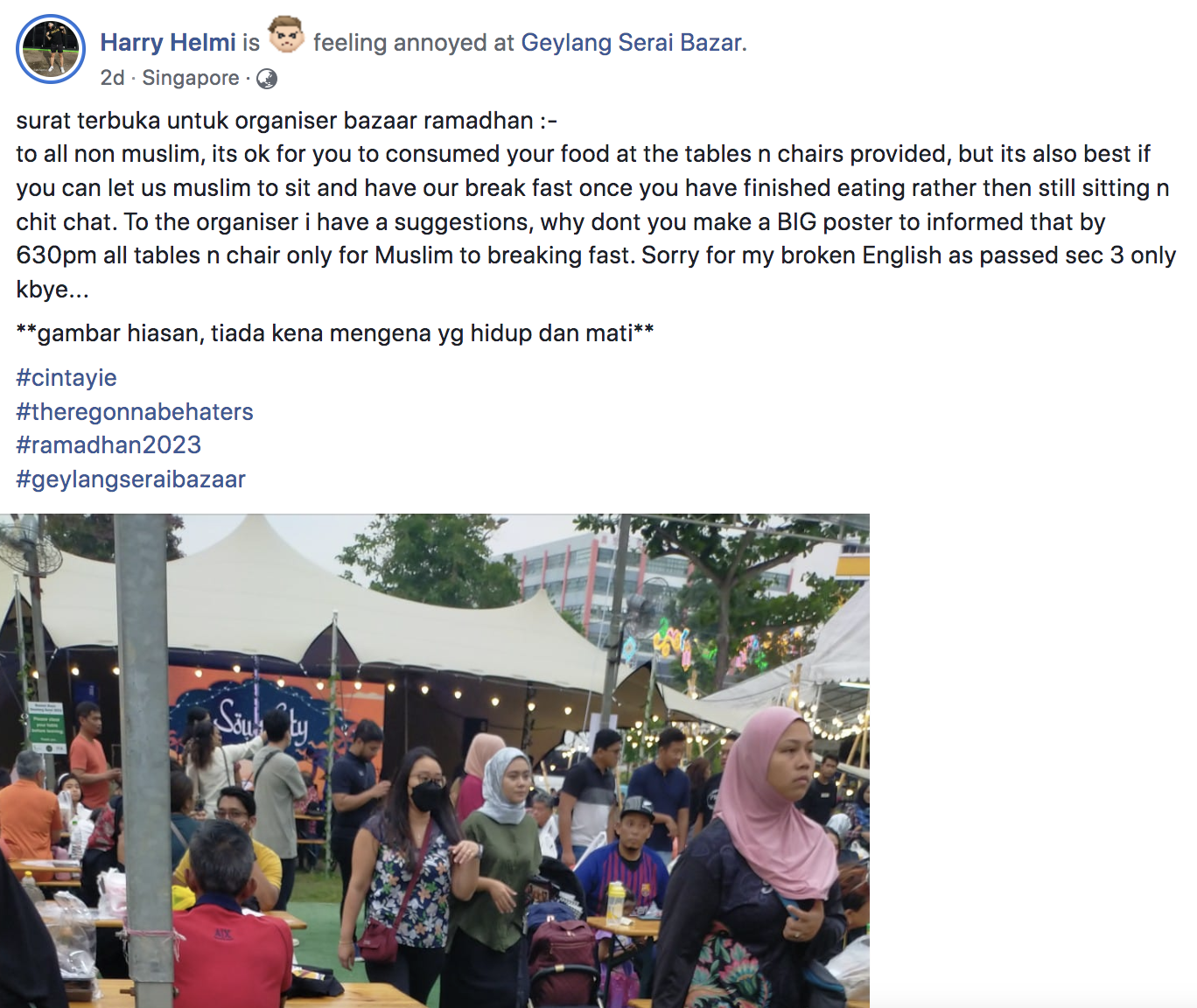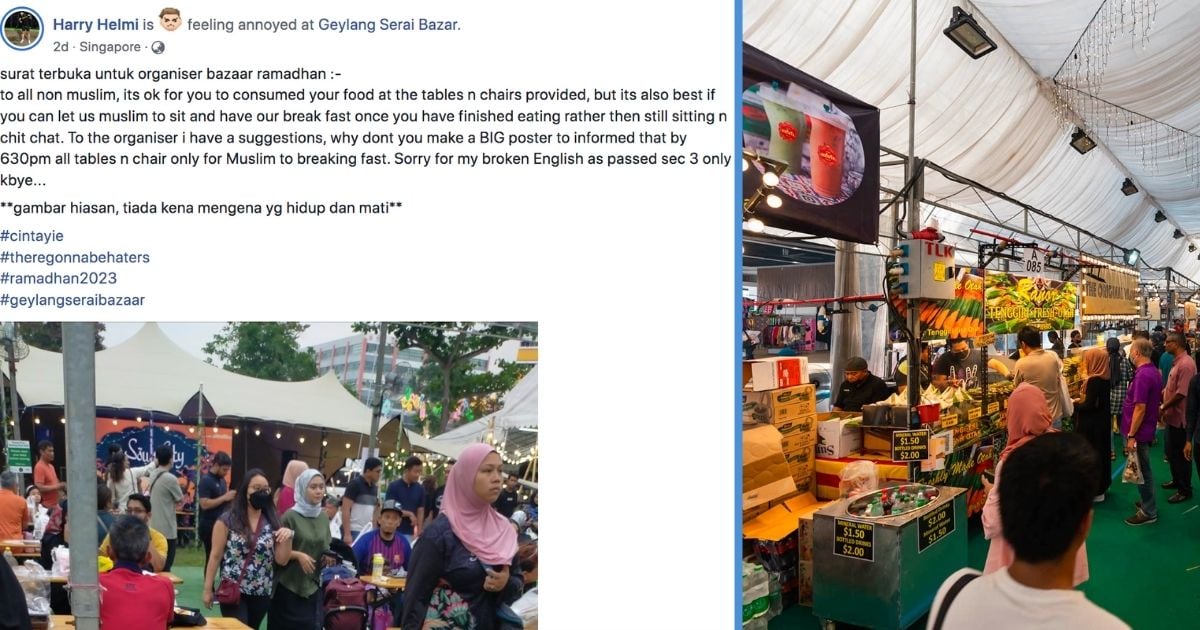Singapore prides itself on being a multiracial country—it’s in our pledge, and we have a day celebrating racial harmony.
So, if you were educated in Singapore, you’ve probably had a chance to experience the culture of other races during their festivals, whether it’s Chinese New Year, Deepavali, or Ramadan. It’s no surprise, then, that people of other races would flock to the popular Geylang Serai Ramadan Bazaar. Despite this year’s flood of stallholder complaints, the number of visitors hit a record high, with 2 million people in attendance.
Some, however, were dissatisfied with the crowds and took to Facebook to complain about it—this man was criticised recently for saying that non-Muslim people should not be allowed to sit at the tables and chairs there, when it was time for Muslims to break fast.
The Facebook Post
On 7 April, Facebook user Harry Helmi wrote an “open letter” to the organisers of the Geylang Serai Ramadan Bazaar, suggesting a change they should make.

In the post, he addresses non-Muslim people first, saying that they should vacate their tables and chairs as soon as they finish their meal, in order to allow Muslim people to sit at the tables provided to break their fast.
He then provided a suggestion to the organiser that only Muslim people should be allowed to use these tables after 6.30 pm, and said this could be done by making a “big poster” to inform everyone else.
Ending off the post, he apologised for his “broken English”. He even astutely hashtagged it with “#theregonnabehaters”.
The post has since garnered more than 800 comments and close to a thousand shares.
Response From The Public
Unsurprisingly, he caught a lot of flack in the comments section, with Muslims and non-Muslims alike largely criticising his idea.
People advised him to simply ask patrons there if he could have a seat instead, and shared their own experiences of doing the same, saying that diners were usually willing to share their tables or give up their seats.

They also reminded him that Singapore was a multiracial country, and it was essential to extend consideration to everyone.

Others said that he should have anticipated the crowds, and told him to break his fast at home instead if he was unprepared for them, or arrive earlier to reserve a table.


People called him out on his entitled mentality too:

Of course, a few expressed support for his sentiments, with a commenter calling the idea “very good” (terbaik) in Malay.

However, these comments were still in the minority. Many Muslim commenters invited non-Muslims to sit wherever and whenever they wanted, hoping to spread love during the Ramadan festivities.

If there was one good thing to come out of his post, it was the outpour of unity that is truly testament to Singapore’s racial and religious harmony.

The Geylang Serai Ramadan Bazaar this year is not short of controversy—at the bazaar’s opening on 17 March, 20% of its stores were still empty.
According to stallholders, this year’s rent was exorbitant, with base rental rates for F&B stores ranging from $14,000 to $19,000.
Others claimed that the organisers “harassed” them and threatened to close their stores, or promised exclusivity in food item sales only to fall short.
Still, the bazaar remains a hit destination, drawing a footfall of over 2 million visitors since its opening.



